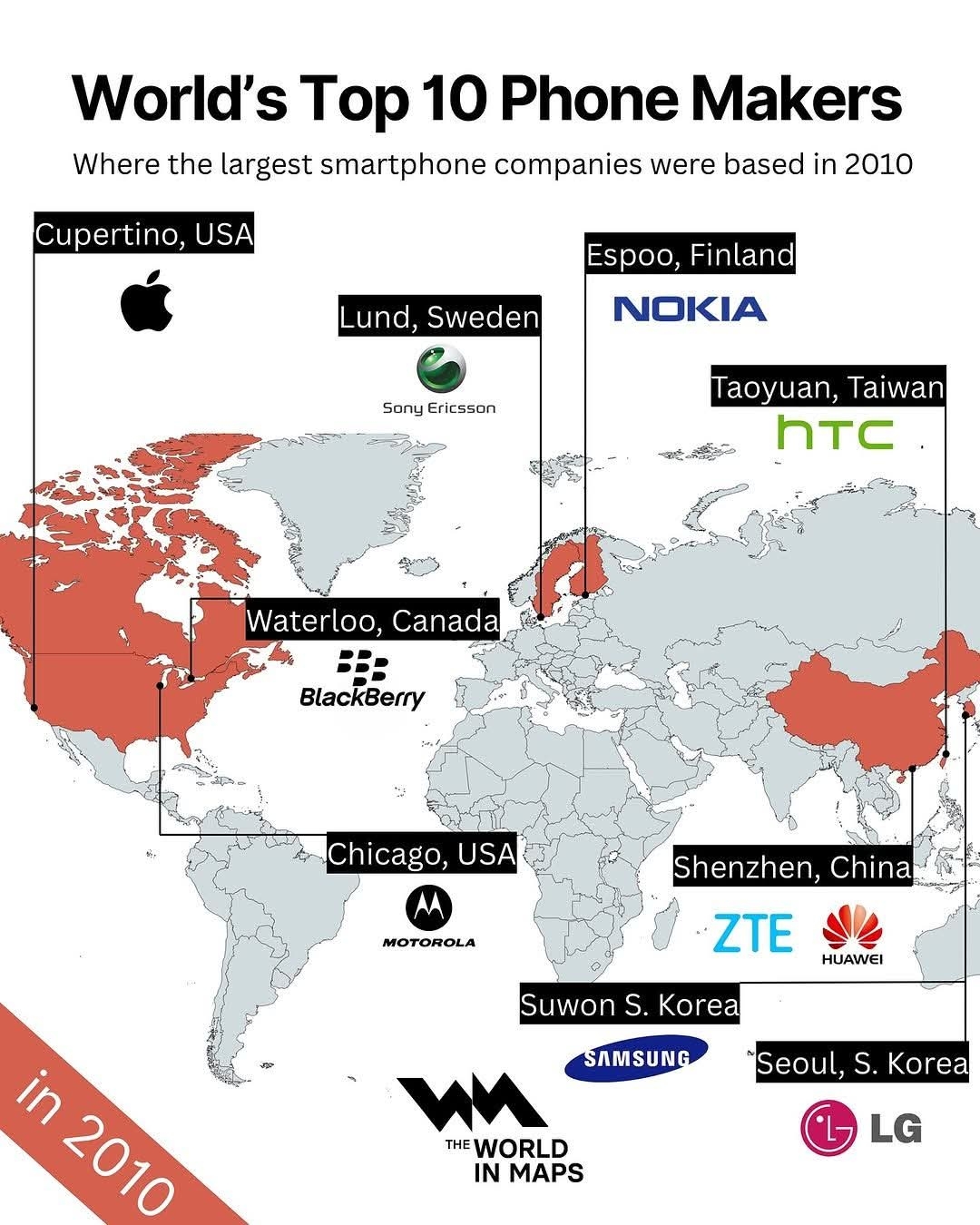These two maps tell a story of rapid transformation. In 2010, the world's top 10 phone makers were spread across North America, Europe, and Asia, with major players like Nokia (Finland), BlackBerry (Canada), Motorola (USA), and Sony Ericsson (Sweden) dominating the market. It was a time when hardware innovation, physical keyboards, and legacy tech brands still defined mobile communication.
Fast forward to today, and the landscape has changed dramatically. Many of those once-dominant brands have disappeared, merged, or fallen behind, while China and South Korea have emerged as the clear powerhouses. Companies like Samsung, Apple, Huawei, Xiaomi, Oppo, and Vivo now control the global market-reflecting a shift not just in geography, but in design, innovation, and global supply chains.
These maps offer more than a snapshot-they capture the rise and fall of tech empires and the center of gravity shifting eastward. A reminder that in tech, even giants can fall-and new players can rise fast.
Fast forward to today, and the landscape has changed dramatically. Many of those once-dominant brands have disappeared, merged, or fallen behind, while China and South Korea have emerged as the clear powerhouses. Companies like Samsung, Apple, Huawei, Xiaomi, Oppo, and Vivo now control the global market-reflecting a shift not just in geography, but in design, innovation, and global supply chains.
These maps offer more than a snapshot-they capture the rise and fall of tech empires and the center of gravity shifting eastward. A reminder that in tech, even giants can fall-and new players can rise fast.
These two maps tell a story of rapid transformation. In 2010, the world's top 10 phone makers were spread across North America, Europe, and Asia, with major players like Nokia (Finland), BlackBerry (Canada), Motorola (USA), and Sony Ericsson (Sweden) dominating the market. It was a time when hardware innovation, physical keyboards, and legacy tech brands still defined mobile communication.
Fast forward to today, and the landscape has changed dramatically. Many of those once-dominant brands have disappeared, merged, or fallen behind, while China and South Korea have emerged as the clear powerhouses. Companies like Samsung, Apple, Huawei, Xiaomi, Oppo, and Vivo now control the global market-reflecting a shift not just in geography, but in design, innovation, and global supply chains.
These maps offer more than a snapshot-they capture the rise and fall of tech empires and the center of gravity shifting eastward. A reminder that in tech, even giants can fall-and new players can rise fast.
0 Comentários
0 Compartilhamentos
628 Visualizações

